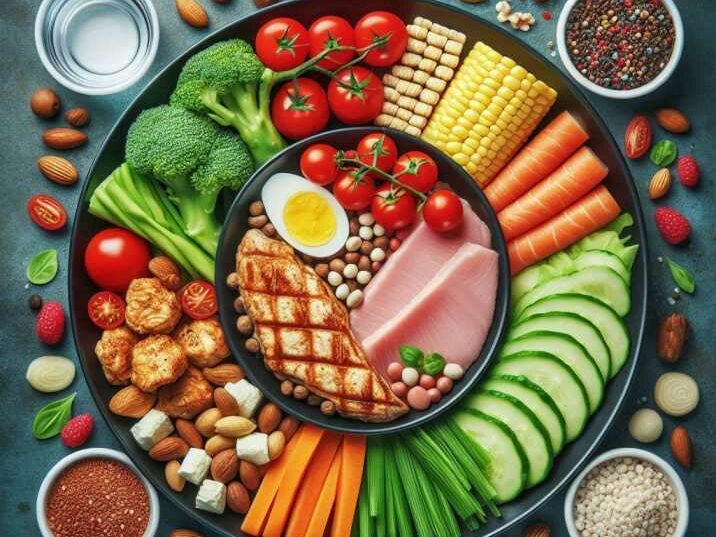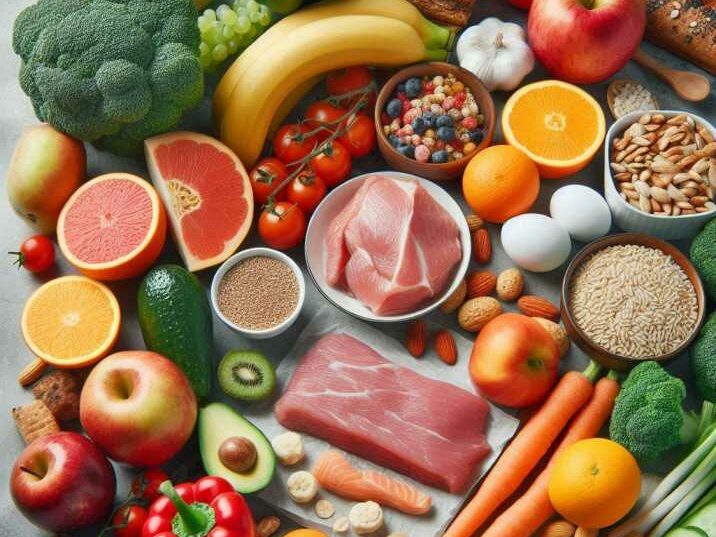Introduction:
Table of Contents
In the dynamic world of martial arts, where agility, strength, and focus are paramount, the significance of proper nutrition cannot be overstated. For young martial artists, who push their bodies to the limit in training and competition, nutrition plays a pivotal role in preventing injuries and enhancing overall performance. This comprehensive guide delves into the vital role of nutrition in preventing injuries, offering valuable insights and practical tips to support the well-being of budding martial artists.

Role of Nutrition in Preventing Injuries for Young Martial Artists:
1. Understanding the Foundations of Nutrition:
Before delving into the specifics of injury prevention, it’s essential to grasp the fundamentals of nutrition. Nutrition encompasses the intake of nutrients from food and its subsequent utilization by the body for growth, repair, and energy production. A balanced diet rich in essential macro and micro-nutrients forms the cornerstone of optimal health and athletic performance.
The Role of Macronutrients:
Macronutrients, namely carbohydrates, proteins, and fats, are the primary sources of energy for the body. Carbohydrates provide quick energy for high-intensity activities, while proteins aid in muscle repair and growth. Fats, although often misunderstood, are crucial for hormone production and cellular function.
The Importance of Micronutrients:
In addition to macronutrients, micronutrients such as vitamins and minerals play indispensable roles in various physiological processes. Vitamins act as antioxidants, supporting immune function and tissue repair, while minerals are essential for bone health, muscle contraction, and nerve transmission.
2. Nutrition Strategies for Injury Prevention:
With a solid understanding of the foundational principles of nutrition, young martial artists can implement targeted strategies to mitigate the risk of injuries and optimize their performance.
Fueling Workouts with Proper Nutrition:
Pre-workout nutrition is crucial for supplying the body with the energy needed to perform at its best. Complex carbohydrates like whole grains, fruits, and vegetables provide sustained energy, while lean proteins support muscle repair and recovery. Hydration is also key, as even mild dehydration can impair performance and increase the risk of injuries.

Supporting Recovery with Post-Workout Nutrition:
After intense training sessions or competitions, the body requires adequate nutrients to replenish glycogen stores and repair muscle tissue. Protein-rich foods such as lean meats, eggs, and dairy products aid in muscle recovery, while carbohydrates help restore energy levels. Additionally, anti-inflammatory foods like fatty fish and leafy greens can help reduce inflammation and promote faster recovery.
3. The Impact of Nutritional Deficiencies on Injury Risk:
Poor nutrition can compromise the body’s ability to withstand the physical demands of martial arts training, increasing the likelihood of injuries. Nutritional deficiencies in key nutrients such as calcium, vitamin D, and iron can weaken bones, impair muscle function, and compromise the immune system, making young athletes more susceptible to injuries.
Addressing Common Nutritional Deficiencies:
To mitigate the risk of injuries associated with nutritional deficiencies, young martial artists should focus on consuming a diverse array of nutrient-rich foods. Foods rich in calcium and vitamin D, such as dairy products, leafy greens, and fortified cereals, support bone health and reduce the risk of fractures. Iron-rich foods like lean meats, beans, and dark leafy greens help prevent fatigue and support oxygen transport in the body.
4. Crafting a Nutrient-Dense Meal Plan:
A well-rounded meal plan tailored to the unique needs of young martial artists can provide the foundation for optimal performance and injury prevention.
Building Balanced Meals:
Each meal should include a combination of carbohydrates, proteins, and healthy fats to provide sustained energy and support muscle repair. Incorporating a variety of colorful fruits and vegetables ensures a diverse array of vitamins and minerals essential for overall health and well-being.
Snacking Smart:
Healthy snacks can help young martial artists maintain energy levels throughout the day and support recovery between training sessions. Opt for nutrient-dense options such as nuts, seeds, yogurt, and fresh fruit to fuel performance without excess sugar or empty calories.

5. Importance of Proper Warm-up and Cool-down:
Injury prevention goes beyond nutrition and extends to proper warm-up and cool-down routines. Before engaging in intense physical activity, young martial artists should perform dynamic stretches and movements to increase blood flow to the muscles and prepare them for action. Similarly, a thorough cool-down consisting of static stretches can help reduce muscle soreness and prevent injuries by promoting flexibility and aiding in muscle recovery.
6. Sleep and Its Impact on Injury Risk:
Quality sleep is essential for young martial artists as it plays a crucial role in recovery, growth, and injury prevention. During sleep, the body undergoes repair processes, including muscle tissue repair and the release of growth hormones. Chronic sleep deprivation can impair cognitive function, increase the risk of injuries due to decreased coordination and reaction time, and compromise immune function, making young athletes more susceptible to illness.
7. Mental Health and Injury Prevention:
In addition to physical well-being, mental health also plays a significant role in injury prevention for young martial artists. High levels of stress, anxiety, or burnout can impair focus and concentration, leading to lapses in technique and an increased risk of injuries. Encouraging open communication, providing support networks, and promoting mindfulness and stress-management techniques can help young athletes maintain mental resilience and prevent injuries.
8. Cross-Training and Injury Prevention:
Cross-training involves participating in a variety of physical activities outside of martial arts practice. Engaging in activities such as swimming, yoga, or strength training can help young martial artists develop overall fitness, improve muscular balance, and reduce the risk of overuse injuries associated with repetitive movements. Additionally, cross-training promotes mental freshness by providing a break from the demands of martial arts training.
9. Importance of Proper Equipment and Safety Gear:
Ensuring that young martial artists have access to proper equipment and safety gear is essential for injury prevention. This includes well-fitted protective gear such as mouthguards, shin guards, and headgear, as well as appropriate footwear for training and competition. Investing in high-quality equipment can minimize the risk of impact-related injuries and provide added support and stability during training sessions.
10. Monitoring and Managing Training Loads:
Overtraining or sudden increases in training intensity can predispose young martial artists to overuse injuries such as stress fractures, tendonitis, and muscle strains. Implementing structured training programs that gradually increase in intensity and duration, incorporating rest days for recovery, and monitoring signs of fatigue or overtraining can help mitigate the risk of injuries and promote long-term athletic development.
11. Injury Prevention Education and Empowerment:
Educating young martial artists about common injury risks, proper injury prevention strategies, and the importance of listening to their bodies can empower them to take an active role in safeguarding their health and well-being. By fostering a culture of injury prevention awareness and proactive self-care, coaches, parents, and mentors can instill lifelong habits that support safe and sustainable participation in martial arts.

Table of Information:
| Topic | Key Points |
|---|---|
| Foundations of Nutrition | Macronutrients: carbohydrates, proteins, fats |
| Micronutrients: vitamins, minerals | |
| Nutrition Strategies | Pre-workout nutrition, post-workout nutrition |
| Hydration | |
| Impact of Nutritional Deficiencies | Calcium, vitamin D, iron |
| Crafting a Nutrient-Dense Meal Plan | Balanced meals, healthy snacking |
| Warm-up and Cool-down | Dynamic stretches, static stretches |
| Sleep and Its Impact | Importance of quality sleep for recovery and injury prevention |
| Mental Health | Stress management, mental resilience |
| Cross-Training | Benefits of engaging in diverse physical activities |
| Proper Equipment and Safety Gear | Importance of well-fitted protective gear |
| Monitoring and Managing Training Loads | Avoiding overtraining, gradual progression |
| Injury Prevention Education | Empowering young athletes with knowledge and awareness |
This table summarizes the key points covered in each section of the article, providing a quick overview of the comprehensive guide to optimizing performance and preventing injuries for young martial artists.
Conclusion:
In conclusion, nutrition plays a pivotal role in injury prevention for young martial artists. By prioritizing nutrient-rich foods, staying hydrated, and addressing any potential nutritional deficiencies, young athletes can optimize their performance and safeguard against injuries. With a holistic approach to nutrition, fueled by knowledge and intentionality, budding martial artists can thrive both on and off the mat.
FAQs:
- Q: Can supplements replace proper nutrition for young martial artists? A: While supplements can complement a balanced diet, they should not be relied upon as a substitute for whole foods. Whole foods provide a diverse array of nutrients that are essential for overall health and performance.
- Q: How much water should young martial artists drink during training sessions? A: Hydration needs vary depending on factors such as body weight, intensity of exercise, and environmental conditions. As a general guideline, young athletes should aim to drink water regularly throughout the day and consume additional fluids during training to prevent dehydration.
- Q: Are there any specific foods that can help reduce inflammation and promote recovery? A: Foods rich in omega-3 fatty acids, such as fatty fish, walnuts, and flaxseeds, have anti-inflammatory properties that can aid in recovery. Additionally, colorful fruits and vegetables contain antioxidants that help combat inflammation and support overall health.
- Q: How can parents support their young martial artists in maintaining a healthy diet? A: Parents can lead by example by modeling healthy eating habits and providing nutritious meals and snacks at home. Involving children in meal planning and preparation can also foster a positive relationship with food and encourage autonomy in making healthy choices.
- Q: Are there any warning signs of nutritional deficiencies that parents should watch out for? A: Symptoms such as fatigue, frequent illnesses, poor concentration, and slow recovery from injuries may indicate potential nutritional deficiencies. Consulting with a healthcare professional can help identify any underlying issues and develop a plan to address them through diet and supplementation.


